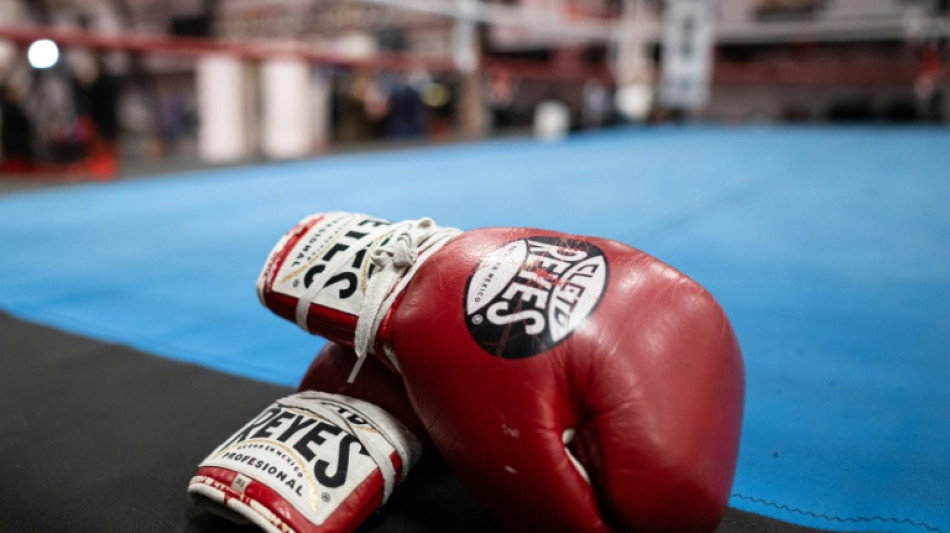Deaths could spell end for Japanese boxing, says commission chief / Photo: Miguel MEDINA - AFP
Japanese boxing is at "a crucial moment" and could cease to exist if it does not radically improve safety, the head of the country's boxing commission told AFP following the deaths of two fighters.
Super featherweight Shigetoshi Kotari and lightweight Hiromasa Urakawa, both 28, fought on the same card at Tokyo's Korakuen Hall on August 2 and died days later following brain surgery.
The deaths have shaken the Japanese boxing world to the core, with authorities investigating the causes and debating measures to prevent further tragedies.
Japan Boxing Commission secretary-general Tsuyoshi Yasukochi told AFP that they cannot afford to botch their response and that the future of the sport is at stake.
"If we don't improve things, this sport won't be able to continue. If the people involved in the sport can't improve things, we will have to quit," he said.
"I understand that we are at a crucial moment where a sport that has been around for 100 years could potentially disappear.
"I think everyone is working every day with that mindset," he added.
Japanese boxing authorities are considering a raft of new measures to make the sport safer.
They include urine tests to measure dehydration and stricter rules on boxers' rapid weight loss.
Dehydration caused by cutting weight rapidly is regarded as a factor in making the brain more susceptible to bleeding, according to the World Boxing Association.
Yasukochi said authorities hope to announce concrete plans in September and pledged that "everyone feels a strong sense of urgency".
"When a person dies it's something that has a big impact," he said.
"If you don't feel that, then you're not qualified to be involved in boxing."
Kotari and Urakawa's deaths came less than two years after another Japanese boxer, Kazuki Anaguchi, died following a December 2023 bout in Tokyo.
In May this year, Ginjiro Shigeoka collapsed after a fight in Osaka and underwent brain surgery.
The 25-year-old remains in a coma but is no longer in a life-threatening condition, the JBC says.
Last week, authorities said that an amateur boxer in Japan had not regained consciousness two weeks after undergoing emergency brain surgery following a sparring session.
Yasukochi said Japanese boxing was "at a crossroads".
"Some people might say that this is a sport where such accidents can happen, but we can't afford to think that way," he said.
"These things keep happening and we can't brush them off as coincidences. We need to investigate the causes and manage the aftermath."
K.Smeets--LCdB
